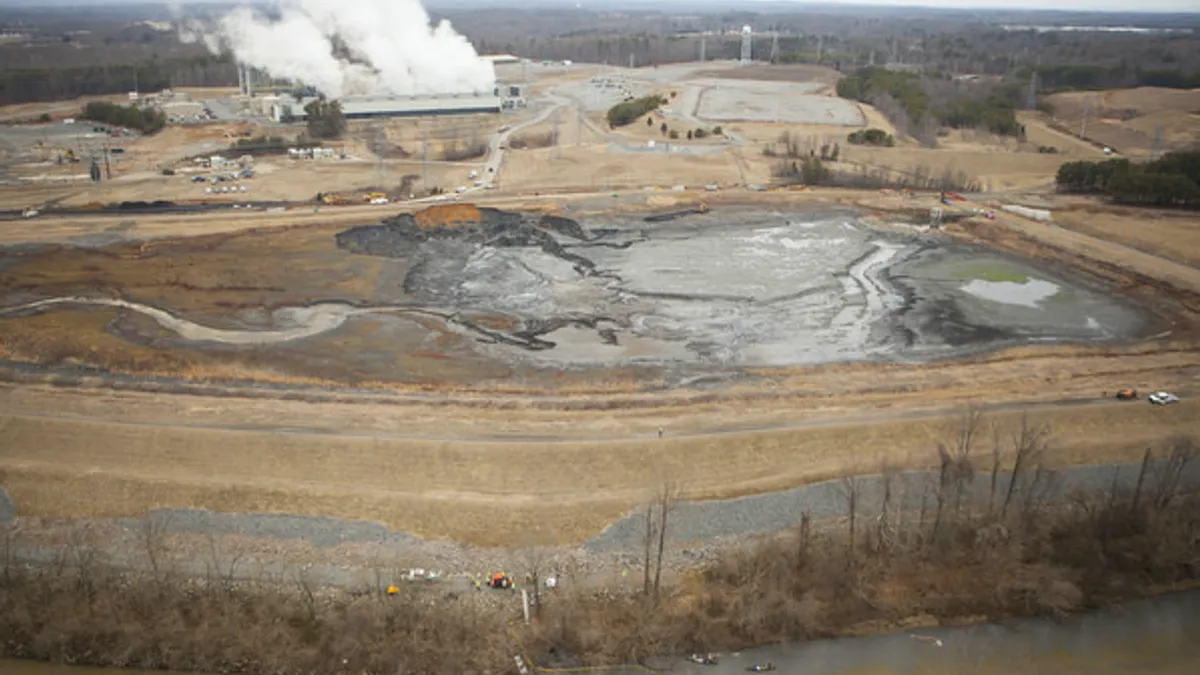Dive Brief:
- North Carolina's Department of Environmental Quality proposed classifications for 32 of Duke's coal ash ponds last week, listing 12 as intermediate risk, eight as low-intermediate risk, and four as low risk, the Charlotte Business Journal reports. Eight of Duke's ponds previously labeled as high risk retained those listings in the classifications.
- Environmentalists decried the decision, pointing out that an earlier staff recommendation suggested that 19 of those 32 ponds should be classified as high risk.
- Under North Carolina's Coal Ash Management Act, ponds ranked as "high-risk" must be shuttered and the ash buried by August 2019; those labeled as "intermediate-risk" must be closed by 2024 and those listed as low-risk must be cleaned up by 2029.
Dive Insight:
DEQ's classification decision was met with disappointment from the state's environmental advocates and welcomed by Duke Energy.
“We appreciate the work that has gone into developing these preliminary recommendations,” Duke says. “We’re particularly interested in understanding how the state is balancing the requirements of the Coal Ash Management Act to ensure the environment is well protected without unnecessary cost and impact to customers and communities.”
Environmental advocates expressed disappointment in what they saw as failure to protect the state's waterways.
"Once again, the DEQ political leadership has failed to do its job to protect North Carolina’s clean water and communities,” said staff attorney Frank Holleman for the Southern Envionmental Law Center. “Politics has trumped science and common sense.”
Earlier this month, the SELC released a draft report from the DEQ which suggested that the state should label most of them "high priority," and consequently in need of excavating and closure by 2019. DEQ and Duke Energy said that report didn't contain the most up-to-date information, with the state regulators referencing the SELC release in the announcement of the proposed classifications on Dec. 31.
"I am disappointed that special interest groups attempted to corrupt the process by leaking an early draft that was based on incomplete data,” DEQ Secretary Donald van der Vaart said, according to the news outlet. “The draft classifications released today reflect the latest environmental science.”
In June 2015, the North Carolina Supreme Court ruled that the state’s 2014 coal ash law allows Duke Energy until 2029 to complete its coal ash site clean-up in the state. A year ago, the utility revealed in regulatory filings that it had identified an estimated 200 leaks and seeps at 32 coal ash storage sites, with the leaks releasing over 3 million gallons of contaminated wastewater daily.
Correction: An earlier version of this post stated that the DEQ's proposed classifications listed eight of Duke's ponds as high risk. In fact, those eight ponds were previously listed as high risk and retained their status in the proposed classifications.














